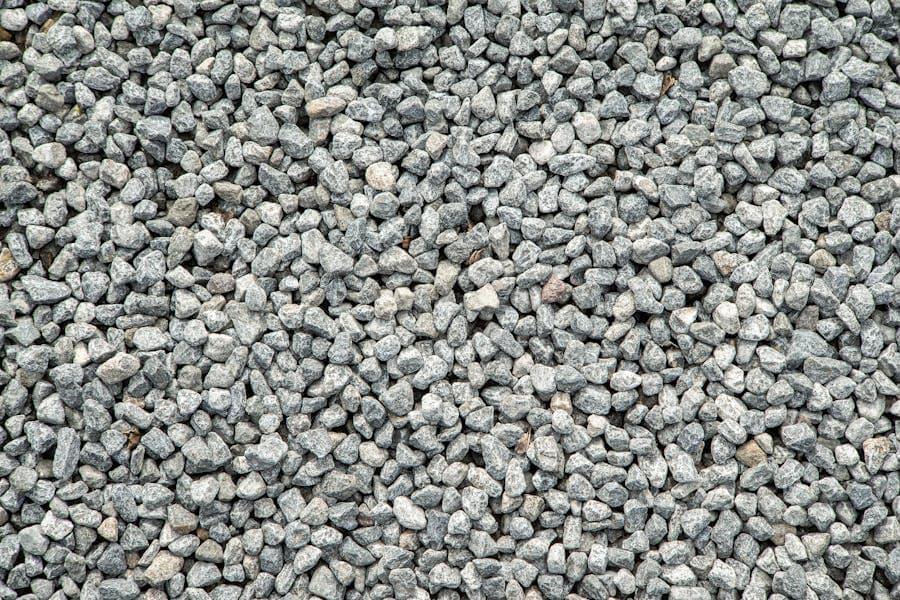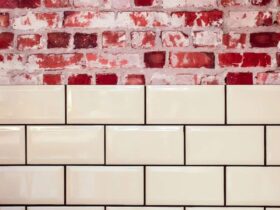For driveways, the best size gravel is ¾ inch or 1-inch stones, which provide good stability and drainage. These sizes create a solid driving surface without being too large.
When choosing gravel for a driveway, it’s important to consider both aesthetics and functionality. The right size gravel not only enhances the appearance of your driveway but also ensures proper water drainage and reduces the risk of erosion. Properly sized gravel also provides better traction and reduces the likelihood of the stones shifting over time.
By understanding the best size gravel for driveways, you can make an informed decision that enhances the durability and visual appeal of your driveway.
Ideal Gravel Sizes For Driveway Surfaces
The ideal gravel sizes for driveway surfaces typically range from 0. 75 to 1 inch in diameter. This size provides excellent stability and allows for proper drainage, making it the best option for driveways. Additionally, it creates a solid driving surface that can withstand regular use and heavy loads.
When it comes to driveway surfaces, choosing the right size of gravel is crucial for both aesthetics and functionality. The ideal gravel size will depend on various factors, such as the type of vehicle traffic, climate, and budget. In this article, we will explore some of the most popular gravel options for driveways and their pros and cons.
Pros And Cons Of Quarry Process
Quarry process (also known as QP) is a combination of crushed stone and stone dust that compacts tightly and is ideal for driveways with heavy traffic. The stones range in size from fine dust to 3/4 inches and are available in gray, tan, and beige colors. The pros of using QP for driveways are its affordability, durability, and ability to prevent weed growth. However, it can be dusty and may require frequent maintenance, such as adding more stone dust to prevent erosion.
Navigating Pea Gravel For Driveways
Pea gravel is a popular choice for driveways due to its smooth texture and round shape, which makes it comfortable to walk on. It is available in various colors, such as beige, gray, and white, and ranges in size from 1/4 to 3/8 inches. The pros of using pea gravel for driveways are its affordability, versatility, and low maintenance. However, it can shift easily and may not be suitable for heavy vehicles.
Jersey Shore Gravel: Aesthetics And Durability
Jersey Shore gravel, also known as Delaware Riverbed gravel, is a smooth, rounded stone that comes in various sizes and colors, such as tan, beige, and gray. It is a popular choice for driveways due to its natural beauty and durability. The pros of using Jersey Shore gravel for driveways are its aesthetic appeal, low maintenance, and ability to withstand heavy traffic. However, it can be more expensive than other gravel options and may require occasional replenishment.
Marble Chips: Upscale Driveway Options
Marble chips are a luxurious option for driveways that can add a touch of elegance to any home. They are available in various colors, such as white, gray, and pink, and range in size from 1/4 to 1/2 inches. The pros of using marble chips for driveways are their aesthetic appeal, low maintenance, and ability to prevent weed growth. However, they can be more expensive than other gravel options and may not be suitable for heavy traffic.
Blackstar Rock: The Solid Choice
Blackstar rock, also known as black trap rock, is a dense, durable stone that is ideal for driveways with heavy traffic. It is available in various sizes and colors, such as black and gray, and is known for its ability to resist erosion and compaction. The pros of using blackstar rock for driveways are its durability, low maintenance, and ability to prevent weed growth. However, it can be more expensive than other gravel options and may not be suitable for those looking for a softer texture.
In conclusion, choosing the right size of gravel for your driveway is essential for both functionality and aesthetics. Consider factors such as traffic, climate, and budget when selecting the ideal gravel option for your home. Whether you opt for the affordability of quarry process or the luxury of marble chips, there is a gravel option for every home and budget.

Credit: www.tigardsandandgravel.com
Factors Influencing Gravel Selection
When it comes to selecting the best gravel for driveways, several factors should be taken into consideration to ensure optimal performance and longevity. These factors include climate and weather considerations, driveway usage and vehicle types, as well as maintenance and longevity concerns. By carefully evaluating these factors, homeowners can choose the most suitable gravel size for their specific needs, ensuring a durable and functional driveway surface.
Climate And Weather Considerations
The climate and weather of the region where the driveway is located play a crucial role in determining the ideal gravel size. In areas with heavy rainfall and frequent freeze-thaw cycles, larger gravel sizes such as 1 to 2 inches are recommended to prevent the gravel from being washed away or displaced. Conversely, in drier climates, smaller gravel sizes like 3/8 inch may be sufficient, as they provide a more compact surface and minimize dust and erosion.
Driveway Usage And Vehicle Types
The usage of the driveway and the types of vehicles that will be using it are important factors to consider when selecting gravel size. For driveways that will accommodate heavy vehicles or experience frequent traffic, larger gravel sizes such as 1 to 2 inches are preferable as they offer better stability and durability. On the other hand, driveways primarily used by lighter vehicles may benefit from smaller gravel sizes like 3/8 inch, which can provide a smoother driving surface.
Maintenance And Longevity Concerns
Considering maintenance and longevity is essential when choosing the gravel size for driveways. Larger gravel sizes tend to be more durable and require less frequent replenishment, making them a suitable choice for homeowners seeking low-maintenance options. Smaller gravel sizes, while offering a more compact surface, may necessitate more regular maintenance to prevent displacement and maintain an even driving surface.
Cost-effective Gravel Options
When it comes to choosing the right gravel for your driveway, it’s important to consider both functionality and affordability. Luckily, there are several cost-effective gravel options available that can provide both a durable surface and an attractive aesthetic. In this section, we will explore three popular choices for budget-friendly gravel: pea gravel, crushed granite, and steel slag.
Assessing The Affordability Of Pea Gravel
Pea gravel is a small, rounded stone that is known for its affordability. It is often used in driveways due to its smooth texture and natural appearance. One of the main advantages of pea gravel is its cost-effectiveness. It is typically less expensive than other types of gravel, making it a popular choice for homeowners on a budget.
Moreover, pea gravel is easy to install and maintain. Its small size allows for easy spreading and leveling, reducing the overall labor and time required for installation. In terms of maintenance, pea gravel is relatively low-maintenance, requiring occasional raking to keep the surface even and free from debris.
Crushed Granite: Budget-friendly And Stylish
Crushed granite is another affordable gravel option that offers a unique blend of durability and style. It is made by crushing granite rocks into small, angular pieces. This creates a more compact and stable surface compared to pea gravel.
One of the key advantages of crushed granite is its versatility. It is available in various colors and sizes, allowing homeowners to choose a style that complements their property. Additionally, crushed granite provides excellent drainage, preventing water accumulation and potential damage to the driveway.
Furthermore, crushed granite is known for its longevity. It is resistant to erosion and can withstand heavy traffic, making it a durable option for driveways. With proper installation and maintenance, crushed granite can last for many years, providing excellent value for money.
Steel Slag: The Economical Aggregate
Steel slag is a byproduct of the steel manufacturing process and is often used as an economical aggregate for driveways. It is created when molten steel slag is rapidly cooled, resulting in a hard and durable material.
One of the main advantages of steel slag is its affordability. As a byproduct, it is readily available and can be purchased at a lower cost compared to other gravel options. This makes it a popular choice for those looking to create a cost-effective driveway.
In addition to its affordability, steel slag offers several benefits for driveways. It has excellent compaction properties, creating a solid and stable surface. Steel slag is also resistant to weathering and erosion, ensuring its longevity and reducing the need for frequent repairs or replacements.
When considering cost-effective gravel options for your driveway, pea gravel, crushed granite, and steel slag are all excellent choices. Each option offers its own unique benefits in terms of affordability, durability, and aesthetics. By carefully assessing your needs and budget, you can select the gravel that best suits your requirements.
Calculating Required Gravel Quantities
For driveways, choosing the right gravel size is crucial. To calculate the required gravel quantities, consider using 1/4 to 1/2 inch gravel for the top layer. This size provides a stable surface and helps prevent gravel from shifting, making it ideal for driveways.
Determining Driveway Dimensions
Before calculating gravel quantities for your driveway, you need to determine the dimensions of your driveway by measuring the length and width.
Depth Requirements For Stability
The depth of gravel needed for a driveway varies, but generally, a 4-inch layer is recommended for stability and durability.
Bulk Ordering Vs. Individual Bags
Consider ordering gravel in bulk for larger driveways to save money and ensure consistent quality throughout the project.
When calculating the required gravel quantities for your driveway, you should take into account both the dimensions of your driveway and the depth of gravel needed for stability.
Begin by measuring the length and width of your driveway to determine the total square footage. Multiply the length by the width to get the area in square feet.
Once you have the total square footage, you can calculate the volume of gravel needed by multiplying the area by the depth of gravel required. For example, for a 4-inch depth, multiply the area by 0.33 (4 inches converted to feet).
When deciding between bulk ordering and individual bags of gravel, keep in mind that bulk ordering is often more cost-effective and ensures a consistent quality of gravel for the entire driveway.
Installation Tips For Long-lasting Driveways
Choosing the right size gravel is crucial for a long-lasting driveway. Small stones combined with rock dust, like quarry process or pea gravel, create a more solid driving surface. Other options include Jersey Shore gravel, marble chips, and blackstar or blacktrap rock.
Calculate the right amount of gravel needed and choose the best type for your driveway’s slope and style.
When it comes to installing a gravel driveway that will stand the test of time, proper preparation and techniques are key. By following these installation tips, you can ensure that your driveway remains durable and functional for years to come.
Preparing The Foundation Layer
The foundation layer is the base of your driveway and plays a crucial role in its longevity. Here are some best practices to consider when preparing the foundation layer:
- Clear the area: Start by removing any vegetation, rocks, or debris from the area where the driveway will be installed.
- Excavate the soil: Dig down to a depth of at least 8 inches to create a stable foundation. Remove any soft or unstable soil.
- Compact the soil: Use a compactor or tamper to firmly pack the soil. This will provide a solid base for the gravel.
Best Practices For Spreading Gravel
Properly spreading the gravel is essential for achieving a smooth and long-lasting driveway surface. Here are some best practices to keep in mind:
- Choose the right size: Selecting the appropriate size of gravel is crucial. Opt for gravel that is 1/4 inch to 3/8 inch in size, as this provides good drainage and stability.
- Spread evenly: Use a rake or shovel to spread the gravel evenly across the driveway. Aim for a depth of 2 to 3 inches for optimal coverage.
- Compact the gravel: Once the gravel is spread, use a compactor or tamper to compact it. This will help to create a solid surface and prevent shifting.
Edging Solutions To Keep Gravel In Place
Keeping the gravel in place is essential for maintaining the integrity of your driveway. Consider implementing the following edging solutions:
- Install landscape edging: Use plastic or metal landscape edging to create a barrier along the edges of the driveway. This will help to contain the gravel and prevent it from spreading.
- Add a border: Another option is to add a border made of bricks, pavers, or concrete. This not only keeps the gravel in place but also adds visual appeal to your driveway.
- Maintain regular maintenance: Regularly inspect the edging and make any necessary repairs or adjustments to ensure it remains effective in keeping the gravel contained.
By following these installation tips, you can create a long-lasting and functional gravel driveway. Remember to properly prepare the foundation layer, spread the gravel evenly, and implement edging solutions to keep the gravel in place. With these techniques, you can enjoy a durable and visually appealing driveway for years to come.
Maintenance And Upkeep Of Gravel Driveways
For the maintenance and upkeep of gravel driveways, it is important to choose the right size of gravel. The best size of gravel for driveways is typically small stones combined with rock dust, creating a solid driving surface. Some options include quarry process, pea gravel, jersey shore gravel, marble chips, and blackstar or blacktrap rock.
Routine Raking And Surface Leveling
Regular maintenance is crucial for the longevity of a gravel driveway. Raking the surface of the driveway to remove debris, leaves, and small rocks is essential to maintain the integrity of the driveway. The surface of the driveway should also be leveled regularly to ensure that water does not pool in one area, which can cause erosion and lead to potholes. It is recommended to level the surface of the driveway every six months to keep it in good condition.
Weed Prevention And Control Strategies
Weeds can grow in any driveway, but they are more likely to grow in a gravel driveway since the surface is not as compact as asphalt or concrete. To prevent weeds from growing, it is recommended to apply a weed suppressant to the surface of the driveway. This suppressant can be a chemical or organic solution that will prevent weeds from growing. It is important to note that this solution should be applied before the gravel is laid down. If weeds have already started to grow, it is best to remove them manually or with a weed killer.
Refreshing The Top Layer Of Gravel
Over time, the top layer of gravel on a driveway can become worn down or washed away due to weather conditions or heavy traffic. Refreshing the top layer of gravel is important to maintain the appearance and integrity of the driveway. It is recommended to add a new layer of gravel every two to three years, depending on the amount of traffic the driveway receives. This will also help to ensure that the driveway stays level and free of potholes.
In conclusion, maintaining a gravel driveway requires regular upkeep and attention. By routinely raking and leveling the surface, preventing and controlling weeds, and refreshing the top layer of gravel, homeowners can ensure that their driveway remains in good condition for years to come.
Frequently Asked Questions
What Type Of Gravel Is Best For A Driveway?
For driveways, the best gravel type is Quarry Process, Pea Gravel, Jersey Shore Gravel, Marble Chips, or Blackstar Rock. These options provide a solid driving surface due to their small stones mixed with rock dust.
Is 2 Inches Of Gravel Enough For A Driveway?
Yes, 2 inches of gravel is generally enough for a driveway. It provides a solid driving surface when combined with rock dust. Quarry process, pea gravel, jersey shore gravel, marble chips, and blackstar or blacktrap rock are popular options for driveways.
What Is The Difference Between 57 And 67 Gravel?
The main difference between 57 and 67 gravel is the size and shape of the stones. 57 gravel is larger and more angular, while 67 gravel is smaller and smoother, making it suitable for different landscaping and construction applications.
What Is The Cheapest Gravel For Driveways?
Pea gravel, crushed granite, and steel slag are the cheapest options for driveways. They provide a solid driving surface due to the small stones combined with rock dust. Other options include quarry process, Jersey Shore gravel, marble chips, and Blackstar or Blacktrap rock.
What Are The Best Gravel Sizes For Driveways?
For driveways, it’s best to use gravel sizes ranging from 1/4 inch to 1 inch for optimal stability and durability.
Conclusion
Choosing the right gravel size for your driveway is crucial for durability and aesthetics. Consider factors like drainage, stability, and maintenance when selecting the gravel size. Whether it’s Quarry Process, Pea Gravel, or Marble Chips, the best size gravel will enhance your driveway’s functionality and curb appeal.









Leave a Reply